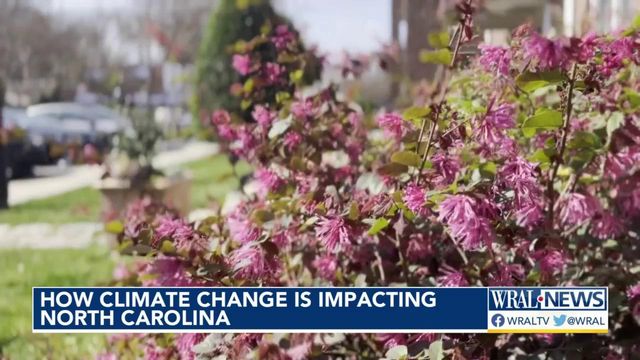Experts say record February heat is a signal of wider warming trend
As temperatures soared to 85 degrees on Thursday in the Triangle, residents were lured outside to enjoy summer activities in February.
Don Babcock played disc golf and rode his bike. Students Hope Scarlett and Clara Jelenevsky were tanning on the North Carolian State University campus after playing volleyball with friends.
"I'm glad its warmer, but its kind of scary," Jelenevsky said.
Jelenevsky is worried about climate change and unbearably hot temperatures that are likely just around the corner.
"I'm already walking to class sweating and boiling hot ... and it's only February," she said.
This month has been the warmest February ever in the Triangle and it's been the warmest winter on record.
WRAL meteorologist Anthony Baglione says Thursday marks the 15th time temperatures of 80 degrees or higher have been recorded at RDU during the month of February.
“I think its probably going to continue," Baglione said.
Baglione predicts that a hot summer, more record temperatures, and more severe weather are coming in the months ahead.
According to Climate Central, North Carolina currently averages about 10 dangerous heat days per year. That number is expected to jump to 60 days per year by 2050.

"North Carolina is warming and our winters are getting warmer too," said Kathie Dello, State Climatologist of North Carolina.
Dello said hotter days are coming sooner in the year and that it's not cooling off as much at night - a problem for crops and public health.
"We have to re-imagine our communities and how we can thrive in a changing climate," Dello said.
Dello suggests more shade structures throughout the city and subsidies for cooling could help prevent some negative health outcomes associated with extreme heat.











